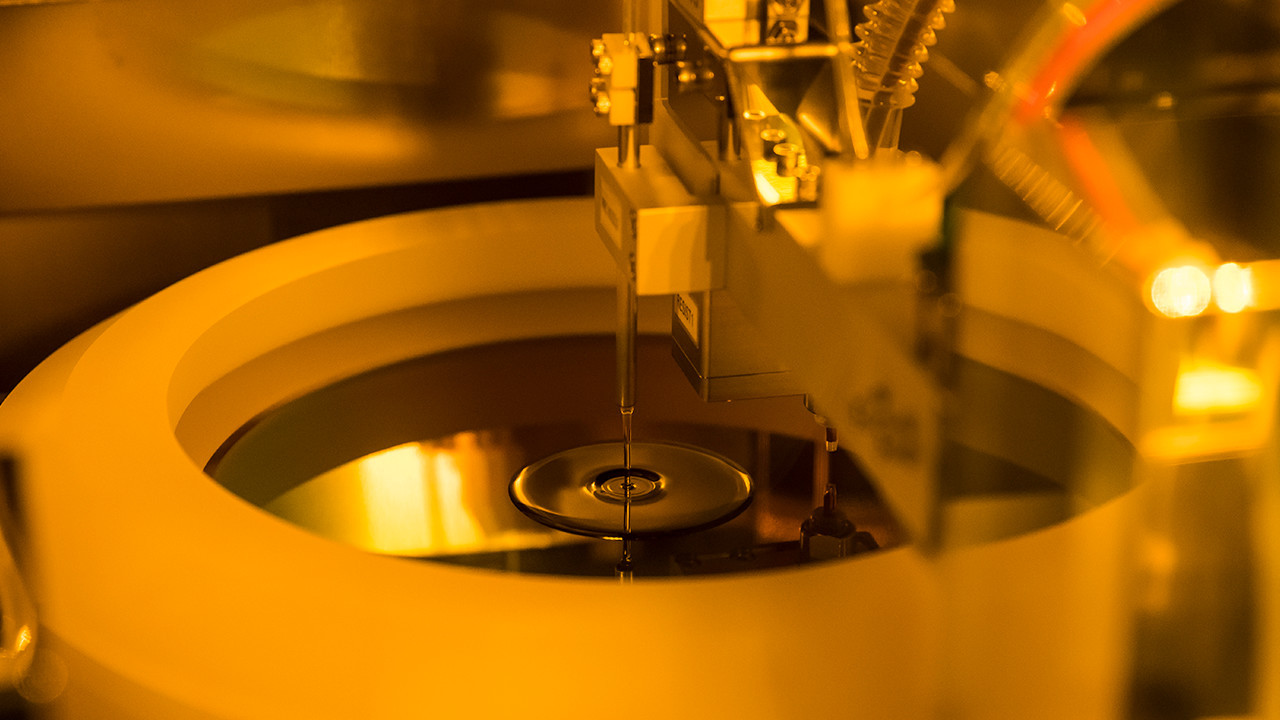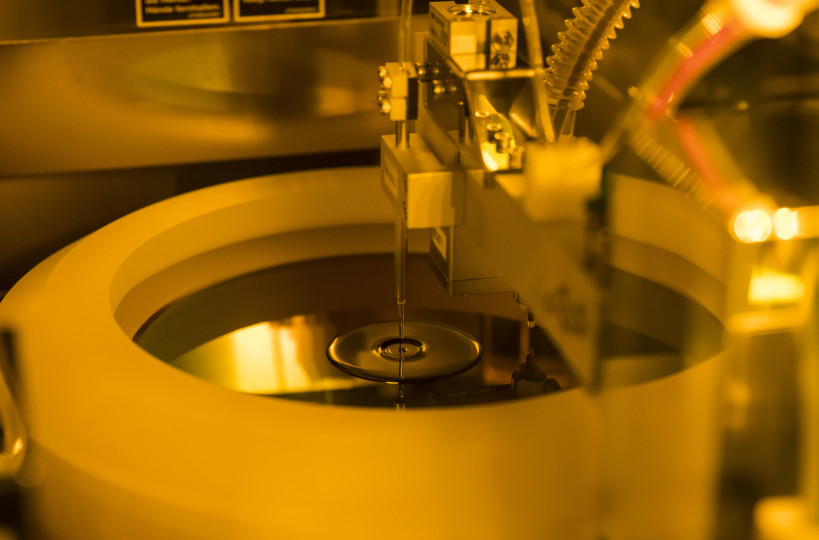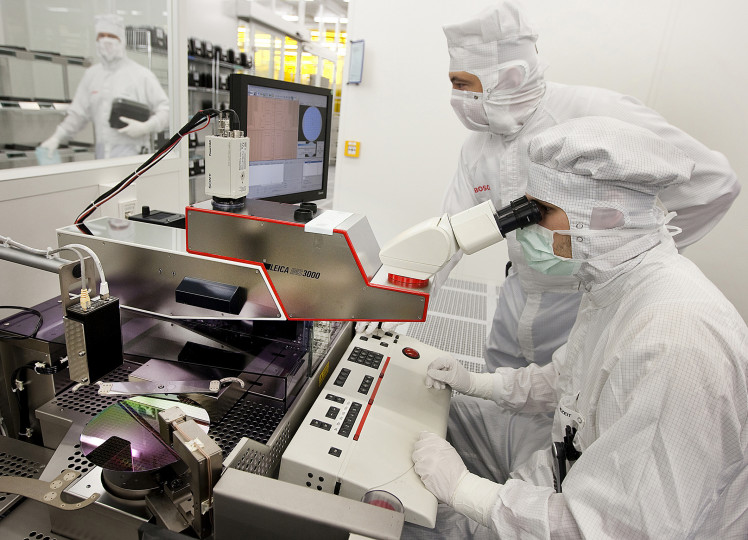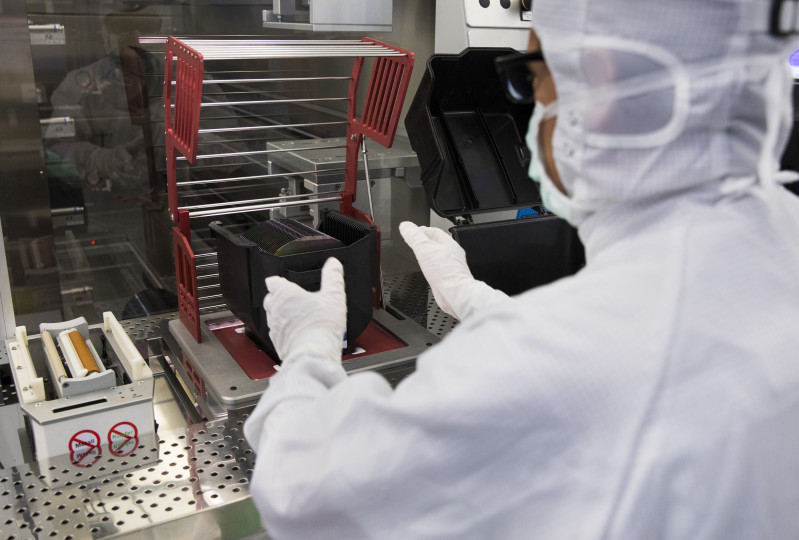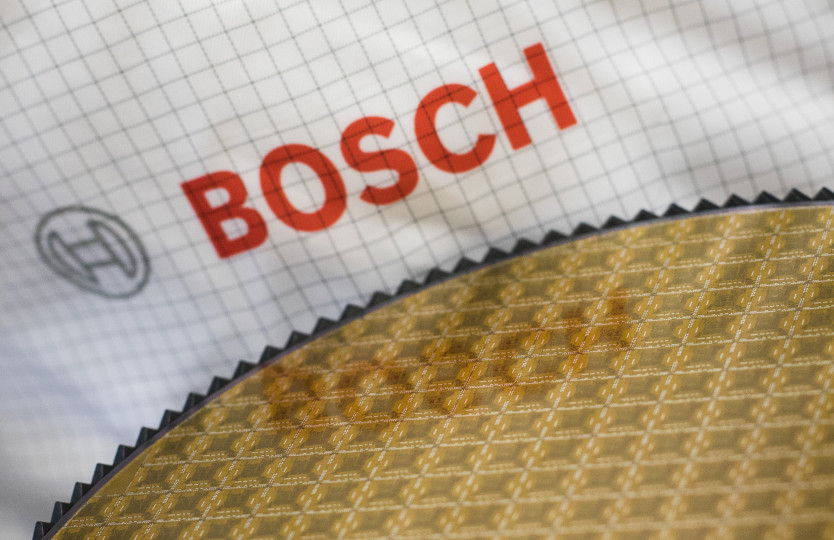Stuttgart and Dresden, Germany – Continuing its course of investing heavily in Germany, Bosch is to build a wafer fab in Dresden. To satisfy the demand generated by the growing number of internet of things (IoT) and mobility applications, the new location is to manufacture chips on the basis of 12-inch wafers. Construction of the high-tech plant is to be completed by the end of 2019. Following a rollout phase, manufacturing operations will likely start at the end of 2021. Total investment in the location will come to roughly one billion euros. “The new wafer fab is the biggest single investment in Bosch’s more than 130-year history,” said Dr. Volkmar Denner, chairman of the board of management of Robert Bosch GmbH. As many as 700 new jobs are to be created in Dresden. “Semiconductors are the core components of all electronic systems. With connectivity and automation growing, they are being used in more and more areas of application. By extending our semiconductor manufacturing capacity, we are giving ourselves a sound basis for the future and strengthening our competitiveness,” Denner said. According to a study by PricewaterhouseCoopers, the global semiconductor market is set to grow by more than 5 percent annually up to 2019, with the mobility and IoT market segments growing especially strongly.
12-inch technology as the basis for economies of scale
Semiconductors are a key technology of our modern age, especially as manufacturing, mobility, and homes become increasingly connected, electrified, and automated. The process of manufacturing semiconductor chips always starts with a silicon disc, known as a wafer. The bigger their diameter, the more chips that can be made per manufacturing cycle. Compared with conventional 6- and 8-inch wafer fabs, 12-inch wafer technology offers economies of scale. These are important, since they allow Bosch to meet the rising demand for semiconductors brought about by connected mobility and applications relating to smart homes and smart cities.
Leading semiconductor manufacturer and pioneer of MEMS fabrication
For more than 45 years, Bosch has been making semiconductor chips in multiple variants, above all as application-specific integrated circuits (ASICs), power semiconductors, and micro-electro-mechanical systems (MEMS). Bosch ASICs have been used in vehicles since 1970. They are customized to individual applications, and essential for functions such as airbag deployment. In 2016, every car rolling off the production lines worldwide had on average more than nine Bosch chips on board.
When it comes to MEMS sensors, Bosch is both a pioneer and the world’s leading manufacturer. More than 20 years ago, the supplier of technology and services itself developed the microfabrication technique known worldwide as the “Bosch process,” which is also used to make semiconductors. At its wafer fab in Reutlingen, Germany, Bosch currently manufactures some 1.5 million ASICs and 4 million MEMS sensors a day on the basis of 6- and 8-inch technology. All in all, the company has made more than 8 billion MEMS sensors since 1995. Today, 75 percent of Bosch MEMS sensors are used in consumer and communications electronics applications. Bosch MEMS sensors can be found in three out of four smartphones. Its current semiconductor portfolio includes above all acceleration, yaw, mass-flow, pressure, and environmental sensors, as well as microphones, power semiconductors, and ASICs for vehicle ECUs.
Mónika Hack
+36 70 510 5516
The Bosch Group is a leading global supplier of technology and services. It employs roughly 390,000 associates worldwide (as of December 31, 2015). The company generated sales of 73.1 billion euros in 2016. Its operations are divided into four business sectors: Mobility Solutions, Industrial Technology, Consumer Goods, and Energy and Building Technology. As a leading IoT company, Bosch offers innovative solutions for smart homes, smart cities, connected mobility, and connected manufacturing. It uses its expertise in sensor technology, software, and services, as well as its own IoT cloud, to offer its customers connected, cross-domain solutions from a single source. The Bosch Group’s strategic objective is to deliver innovations for a connected life. Bosch improves quality of life worldwide with products and services that are innovative and spark enthusiasm. In short, Bosch creates technology that is “Invented for life.” The Bosch Group comprises Robert Bosch GmbH and its roughly 440 subsidiaries and regional companies in some 60 countries. Including sales and service partners, Bosch’s global manufacturing and sales network covers nearly every country in the world. The basis for the company’s future growth is its innovative strength. At 120 locations across the globe, Bosch employs some 59,000 associates in research and development.
The company was set up in Stuttgart in 1886 by Robert Bosch (1861-1942) as “Workshop for Precision Mechanics and Electrical Engineering.” The special ownership structure of Robert Bosch GmbH guarantees the entrepreneurial freedom of the Bosch Group, making it possible for the company to plan over the long term and to undertake significant upfront investments in the safeguarding of its future. Ninety-two percent of the share capital of Robert Bosch GmbH is held by Robert Bosch Stiftung GmbH, a charitable foundation. The majority of voting rights are held by Robert Bosch Industrietreuhand KG, an industrial trust. The entrepreneurial ownership functions are carried out by the trust. The remaining shares are held by the Bosch family and by Robert Bosch GmbH.
Additional information is available online at www.bosch.com, www.iot.bosch.com, www.bosch-press.com, www.twitter.com/BoschPresse, www.bosch.hu

